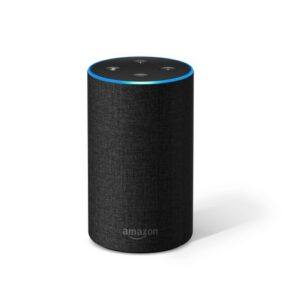Finding its voice: What’s the future of news on smart speakers?
Audio content is having a mini Renaissance. Between radio’s strong showing in adspend predictions for 2019, the steady maturation of the podcast market and the strong showing for audio as a secondary activity, there is a strong case to be made that audio content is a sure bet for media companies.
That’s helped significantly by the mutability of audio content. Music, radio shows and podcasts tend to bleed into one another, with each existing alongside the others on Spotify, DAB and any number of streaming services.
That makes the relative lack of success of news content on connected devices and smart speakers all the more marked. Emarketer’s predictions suggest that the number of smart speakers in US households is set to rise from 16 million to 76 million between 2016 and 2020, based on “stronger than expected uptake” of the devices.
In its report into smart speakers and news, the Reuters Institute for the Study of Journalism echoed that sentiment, arguing that the technology is rapidly approaching the mainstream. Despite that the report authors note that while around half of smart speaker users say they use the device for news, only around one in five use the news briefing functionality daily. Beyond that, only one percent of people say news is the most important feature on the device, with the majority of people saying that the functionality around music is the most important.

The report also notes a litany of other issues around news delivery on smart devices, from a lack of attribution of the source of the news content to the relatively limited functionality of the briefings providing a poor user experience. To some extent that isn’t a surprise: the interests of the manufacturers of some of the smart speakers with the largest penetration – chiefly Amazon and its Alexa – were in service of other products and functions than news (as some truly creepy patents from Amazon make clear).
Google, the manufacturer of the Home range of products – currently second in the market by take-up – have perhaps the best claim to promoting news effectively on its devices. Between its core business model of search and its stated support of the news industry, it’s unsurprising that Google would be the first to really try to address the issues of news content on smart devices.
The search giant has been working with 130 publishers for the past year to build a news radio station that aims to fix consumer problems with news consumption on the platform. Liz Gannes, a former reporter for Recode, Gigaom, and AllThingsD who is working on the initiative, said: “We are combining Google News with the interactivity and voice experience of Google Assistant.”
From the sounds of it, the initiative aims to deliver on the true promise of voice-enabled devices. Rather than simply using voice to initiate the playback of an automated briefing, Google’s idea uses data to inform what is played back and to what degree. As Nieman Lab reports “If you tune in in the morning on your phone, you might get a quick update. If you listen in your car — or anywhere else throughout the day — stories you heard earlier won’t repeat.”
In addition to Google’s aggregation, individual publishers are continuing to experiment with their own propositions on voice devices. Those efforts range from The Economist’s subscription-only voice briefings to De Zeit’s porting across of its existing podcast content. Additionally, advertisers have also taken note of the potential for advertising on those platforms: Outgoing CMO of Unilever Keith Weed has said we stand “at the foothills” of voice. Naturally revenue-hungry media companies are looking to take advantage of that.
A year from now, as the trends around connected cars and devices continue, it’s likely that we’ll see some clearer ideas about how media companies can best take advantage of voice. Until then, however, expect to see some wild experiments, both successful and not.
Chris Sutcliffe
enquiries@trippassociates.co.uk
Martin Tripp Associates is a London-based executive search consultancy. While we are best-known for our work across the media, information, technology, communications and entertainment sectors, we have also worked with some of the world’s biggest brands on challenging senior positions. Feel free to contact us to discuss any of the issues raised in this blog.